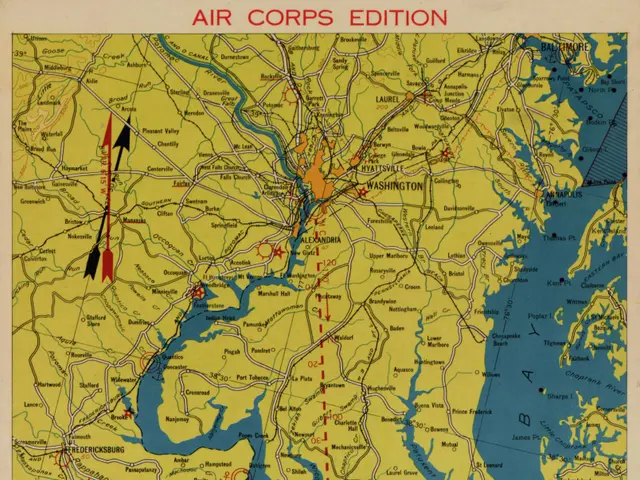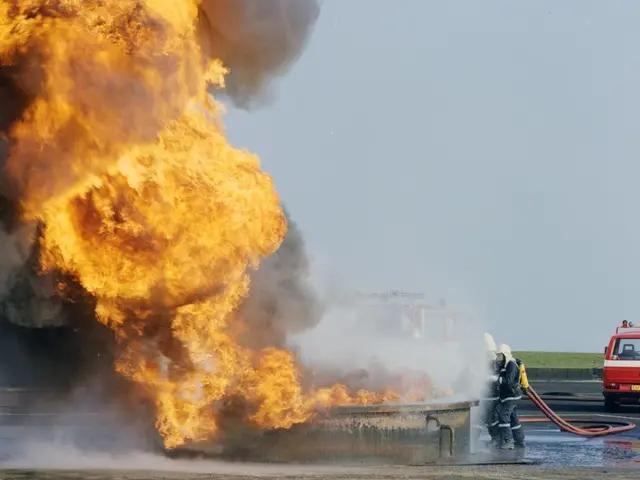NATO's Eastern frontline faced by army progression
The Arctic Light 2025 military exercise, a significant multinational event, is currently underway and will conclude on Friday. This exercise, led by Denmark, is focusing on the Arctic region and involves several European NATO countries, excluding the United States.
The exercise is taking place on and around Greenland, a strategic location as the melting Arctic ice makes it navigable for military operations. The absence of US forces in the Arctic Light exercise is noteworthy, with the Pituffik Space Base, a US military support point, located in Greenland.
The main focus of military exercises in the northern waters is preventing Russian submarines from breaking through into the North Atlantic. As such, Russia, a potential enemy in the sights of NATO exercises in the High North, including the Arctic Light exercise, is a significant factor in these drills.
Russia has recently concluded the large-scale military exercise Sapad 2025, which simulated a military conflict from Poland to North Norway along the entire eastern flank of NATO. In contrast, Russia's role in exercises along NATO's eastern flank is often seen as adversarial and provocative, with nuclear-capable forces being part of its demonstration of military strength.
Elsewhere, around 30,000 NATO soldiers are practicing war in Poland, while about 17,000 soldiers are conducting the Thunder Strike exercise in Lithuania. Further north, in Estonia and Finland, NATO countries are carrying out the Tarassis 25 military exercise.
The expansion of the maneuver zone for military exercises is moving towards the Arctic and Arctic Ocean, becoming ice-free for longer periods of time. This expansion is a response to the changing climate in the Arctic, which is opening up new possibilities for military operations.
It is important to note that Russia, being the largest Arctic coastal state, plays a crucial role in these developments. The ongoing Arctic Light exercise is a testament to the importance of preparedness and cooperation in the Arctic region, as nations work together to ensure peace and stability in this strategically vital area.
Jörg Kronauer, a member of the editorial team at [www.german.foreign-policy.com], provides insightful commentary on these matters, offering valuable perspectives on the geopolitical dynamics at play in the Arctic region. As the world continues to evolve, so too does the need for vigilance and cooperation in ensuring a peaceful and secure future.
Read also:
- United States tariffs pose a threat to India, necessitating the recruitment of adept negotiators or strategists, similar to those who had influenced Trump's decisions.
- Weekly happenings in the German Federal Parliament (Bundestag)
- Southwest region's most popular posts, accompanied by an inquiry:
- Discussion between Putin and Trump in Alaska could potentially overshadow Ukraine's concerns








